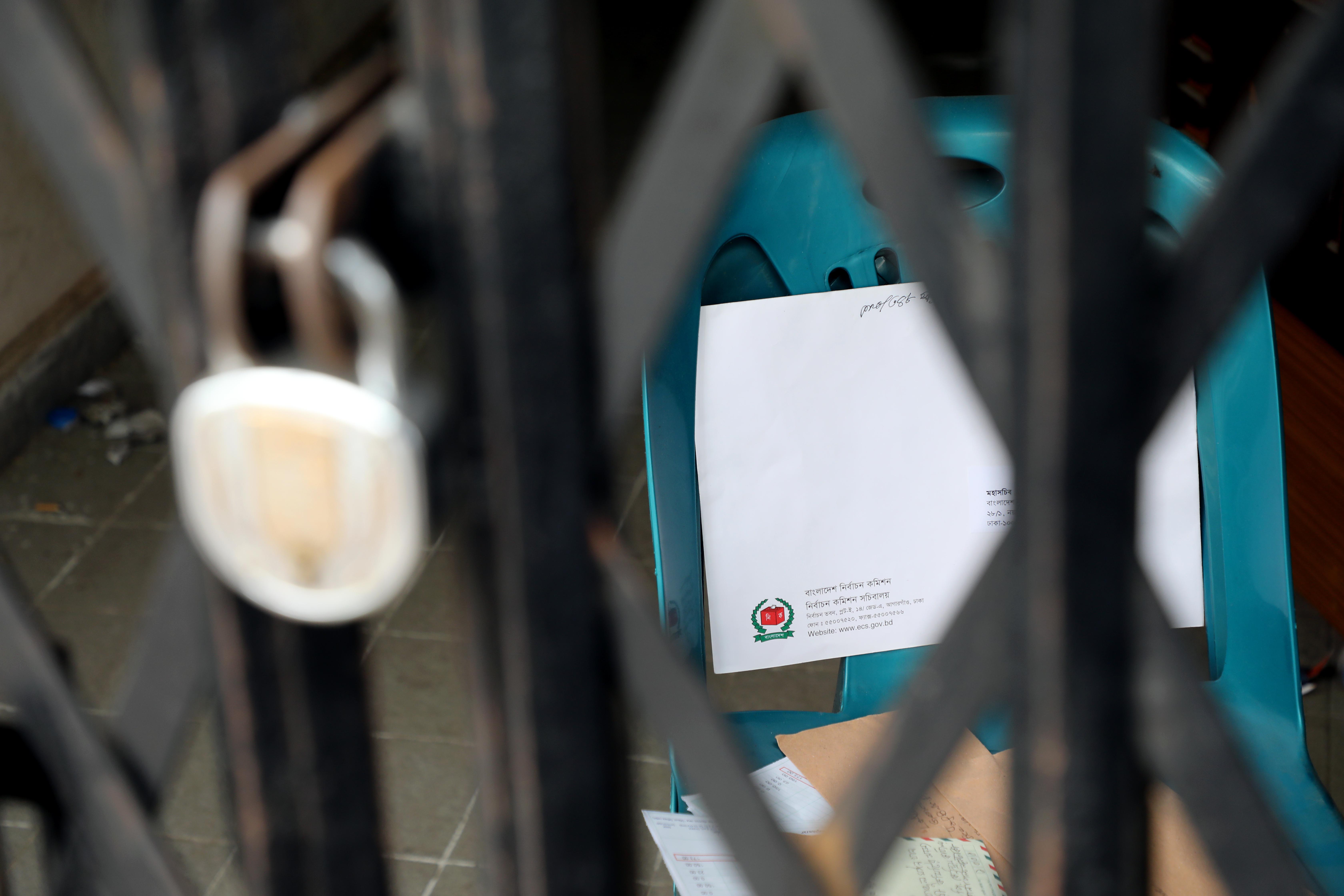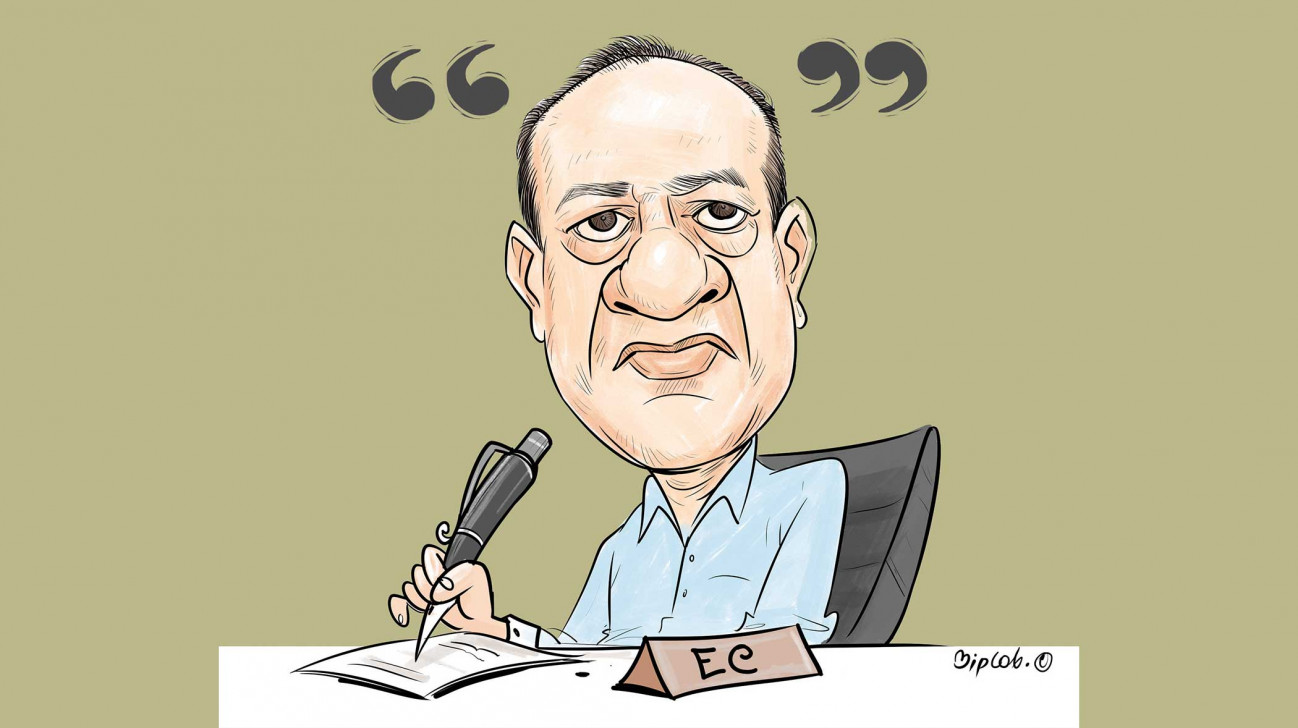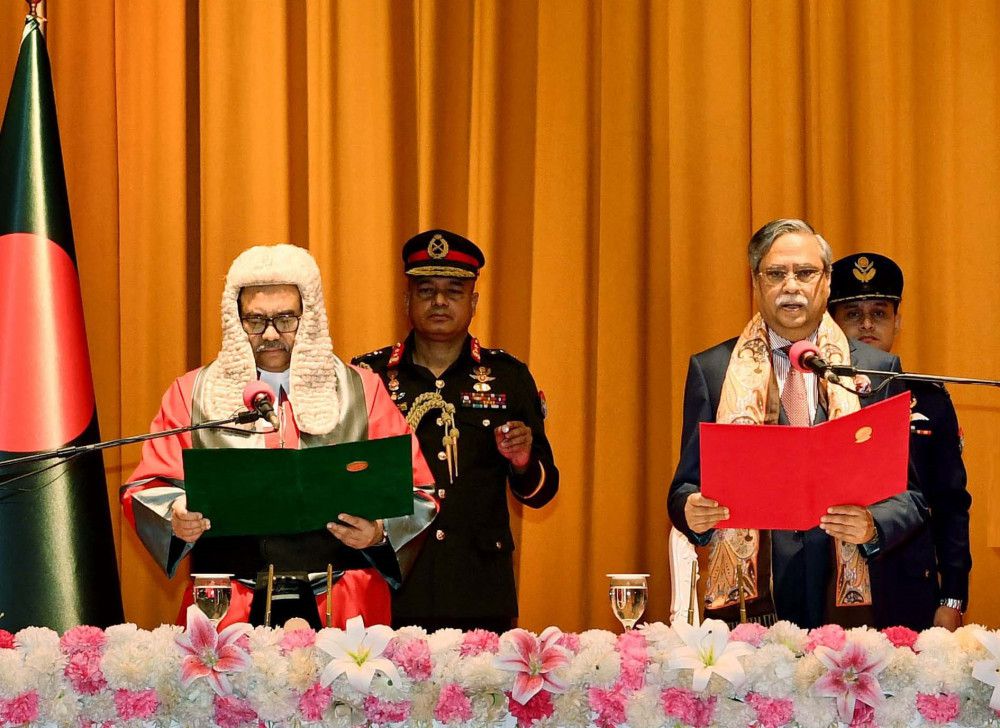Dialogue or mere formality?

On November 4, the Election Commission (EC) invited 43 registered political parties for a dialogue. Given the sheer number of parties, the meeting was held in two phases. However, even so, how practical or efficient was it to attempt dialogue with 20 political parties at once?
Moreover, after BNP's October 28 rally, most of its senior leaders have either been in jail or gone into hiding. Even the mid-level leaders were unavailable due to being arrested or having cases filed against them. How sensible was it to try to hold a dialogue with the party at a time like this? It is clear that the EC is not interested in ensuring the proper participation of BNP, given that the invitation to the dialogue was delivered to the party's locked-up Nayapaltan office. If the EC was indeed interested in bringing BNP to the meeting and the election, the letter could have been sent to the jail so that it could have been produced before the court to avail a short-term bail for BNP leader/s so they could participate in the meeting. But no such effort was noticeable.
When one is getting onto the playing field, they need a referee. It is necessary to ensure that the person conducting the game is unbiased. For this, the referee also needs to have enough power and authority to be able to conduct the game fairly. If they are powerless, then their unbiasedness will not be of use to anyone. Our EC lacks certain capabilities, which reduces the confidence of those participating in any election. The players—the political parties, in this case—don't come onto the field as they don't have faith in the referee.
Besides, among the parties which did participate in the talks, only the Awami League was a key player in terms of its public support and organisational capabilities. Many of the participating parties also expressed dissatisfaction with the meeting. Many issues went unaddressed, such as whether the parties would be able to place their agents at the polling centres or if influential people might remove agents, and whether the influential groups would be kept in check or not.
It seems that the dialogue exchange was merely a structural formality. At the beginning of this EC's tenure, it seemed that it was trying to move on from the ghosts of previous election scandals. Experts were invited to sit with the commission a few times to discuss various issues and the best ways to address them. However, none of our suggestions were turned into effective actions.
When one is getting onto the playing field, they need a referee. It is necessary to ensure that the person conducting the game is unbiased. For this, the referee also needs to have enough power and authority to be able to conduct the game fairly. If they are powerless, then their unbiasedness will not be of use to anyone. Our EC lacks certain capabilities, which reduces the confidence of those participating in any election. The players—the political parties, in this case—don't come onto the field as they don't have faith in the referee. Only those who are benefitting from restricting the EC's capacity will participate.
BNP and its allies have been demanding and protesting for a free and fair election for more than a year at this point. The rallies and demonstrations that they have held during this period, although legal as per the constitution, were met with myriad hurdles, such as restrictions on movement, vehicle entries, and on holding rallies in certain areas.
And while it is a given that the ruling party will also hold their own rallies and demonstrations ahead of the election, for them to conduct theirs the same days (and even in nearby areas) as the opposition's is simply unreasonable. This poses issues for the general population and makes the playing field unequal for other parties.
Back when we were in charge of these, we would take into consideration who had announced a rally or meeting first. We would then shut down the one that was announced later. This meant that the events of the day were easier to control for the police, and there was a slimmer chance of violence erupting. But no such initiative has been taken in recent months.
For the parties who are not in power right now, I believe the way forward would be to proceed with peace. They should follow the laws and rules. I agree that the situation is not in their favour. As for the main opposition on the streets, their senior leadership is behind bars. Meanwhile, if there is an invitation from the government to an unconditional dialogue, then they should participate in that. But this invitation must also be logical and acceptable.
Though normalised in Bangladesh's political culture, strikes and blockades are not good for the economy or for the general public, and should therefore be avoided. Legal efforts should be made to free those who have been put in jail over the last few weeks. It is hoped that the ongoing difficult situation won't last, and that there will be opportunities for dialogue. Hopefully, the opposition parties will be able to organise again and protest peacefully on the field.
As told to Monorom Polok of The Daily Star.
Ali Imam Majumder is a former cabinet secretary of Bangladesh.
Views expressed in this article are the author's own.
Follow The Daily Star Opinion on Facebook for the latest opinions, commentaries and analyses by experts and professionals. To contribute your article or letter to The Daily Star Opinion, see our guidelines for submission.

 For all latest news, follow The Daily Star's Google News channel.
For all latest news, follow The Daily Star's Google News channel. 


Comments